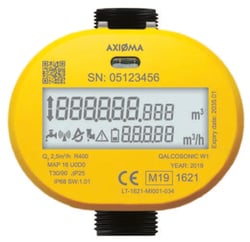The NZ Three Waters Reform flooded with opportunities for local councils
by A D Riley, on Sep 15, 2021 12:23:29 PM
For local New Zealand water authorities' big changes are coming in the way of the Government's Three Waters Reform. The announced plans will consolidate local governing water management bodies into multi-regional entities changing how New Zealand's drinking water, stormwater and wastewater systems are managed.
While local councils will remain a part of their greater water management programmes, the infrastructure governance will be held by the larger entity. As a result, entities will need to operate with a highly transparent accountability framework, with strong customer and community consultation and engagement expectations.
These changes are by no means small but have left ample opportunity for councils to adopt new processes and systems for the betterment of internal practices and more importantly, community outreach.
At the heart of good water management is data
To understand and communicate water usage and management needs clearly, you need data. Over the past five years, water metering technology has seen massive advancements and can now be used as a tool to manage and understand everyday usage down to the hour.
Smart meters are one of the newest forms of water metering technology. They are a form of Internet of Things (IoT) which is a network of technologies that can monitor the status of physical objects, capture meaningful data, and communicate that data over a wireless network to software applications in the cloud. Despite their ability to provide timely and accurate data, smart meters should not be considered expensive. Their cost isn't far from that of manual meters, and with their growing list of benefits, they can help authorities save water management budgets over time. They can also be used as a tool to communicate usage patterns to the everyday consumer, helping to cut water costs at the source.
The benefits of smart metering technology for New Zealand regional councils
The technical stack of smart metering technology such as IoT devices, artificial intelligence and big data means that the benefits for both councils and communities are developing daily.
For councils, smart meters are an affordable, modest solution. By implementing smart meters across multiple sites, councils can use the timely data received to identify infrastructure issues and communicate consumption and billing to residents. Smart metering can help councils gain a clearer understanding of normal and abnormal usage across their communities making it easier to pinpoint issues and improve water management infrastructures as needed. This consequently can help councils avoid complete infrastructure redevelopment and instead focus on gradual advancements over time (CAPEX deferral).
For local communities, having accessible data available can communicate the cost and value of water helping them to understand and reduce their consumption. It can also help them to identify and alert local authorities to any abnormal activity as well.
Smart metering technology makes it easier for councils to communicate water usage, infrastructure problems and development requirements through accurate data. This data can simplify communication to both local communities and the government.
The cost of smart meters
Smart meters in themselves are a simple solution to a big problem. They can provide the intel councils need to action positive infrastructure change at a fraction of other solution costs.
There are multiple smart metering tools available that councils can take advantage of. The cost depends on the functionality, however as smart meters have become more available the cost to implement them has dropped significantly making them an affordable solution that can save councils huge costs over time.
As a comparison, in many cases, manual meters get read two-three times a year. In the interim between readings, there can be significant water loss if an infrastructure issue occurs. Water is a costly resource, and this resource can be identified early and saved by the use of smart meters.
The Government's Three Waters Reform will change how local authorities manage their region's water, but with change comes opportunity. The reform has left ample opportunity for local authorities to reimagine their role and innovate through the forthcoming changes.
If you're interested in learning more about smart meter technology and how it can help your council navigate the NZ Three Waters Reform, please reach out to an ADR Specialist. Alternatively, you can find us at the Water New Zealand Conference & Expo in Hamilton, 19-21 October, stand no. 138, 139 and 146.




